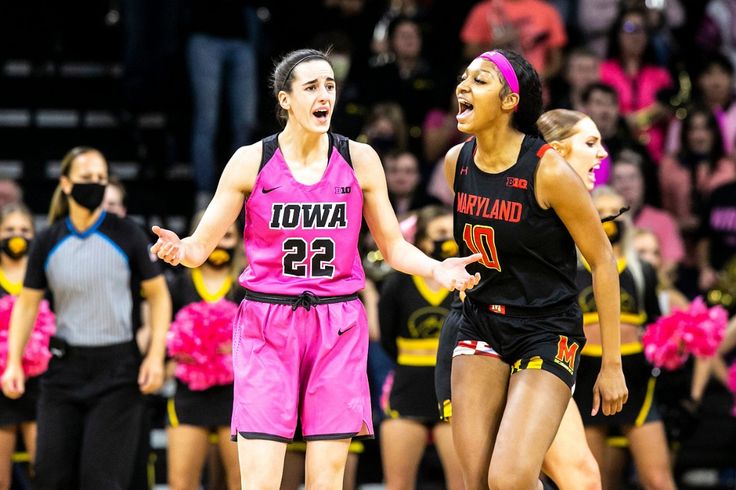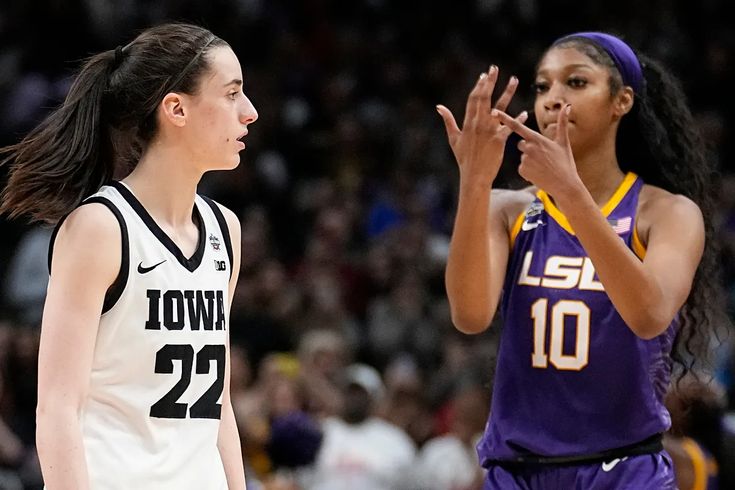Stephen A. Smith’s Controversial Take Ignites WNBA Community Over Caitlin Clark and Angel Reese Drama
The WNBA community has been set ablaze once again by controversial comments from ESPN’s Stephen A. Smith, who declared that Caitlin Clark bears partial responsibility for the backlash that Angel Reese is currently facing in the wake of their ongoing rivalry. Smith’s inflammatory remarks, delivered during his signature passionate style on ESPN’s First Take, have sparked intense debate about accountability, sportsmanship, and the complex dynamics between two of the league’s most prominent young stars. The sports commentator’s assertion that “Caitlin is the one who provoked first, she was waving her hands in front of everyone” has drawn sharp criticism from fans and analysts who question whether this perspective unfairly shifts blame away from Reese’s controversial actions.

The controversy stems from the heated exchanges between Clark and Reese that began during their college careers and have now spilled over into their professional WNBA tenures, creating a narrative that has captivated basketball fans nationwide. Smith’s comments suggest that Clark’s on-court demeanor and competitive gestures, including her tendency to engage in trash talk and celebratory displays, have somehow contributed to the hostile environment that has followed Reese throughout her career. This perspective has been met with fierce opposition from Clark’s supporters, who argue that holding her responsible for the negative reactions directed toward her rival is both unfair and misguided, particularly given the professional nature of competitive sports.
Critics of Smith’s position point out that his analysis appears to ignore the fundamental principle that athletes should be held accountable for their own actions and reactions, regardless of what opponents may do to provoke them during gameplay. The notion that Clark’s competitive spirit and on-court celebrations somehow justify or explain the vitriol directed at Reese has been characterized by many as victim-blaming, with detractors arguing that such reasoning sets a dangerous precedent for how conflicts between athletes should be analyzed and discussed. Furthermore, supporters of Clark emphasize that her playing style and competitive fire are hallmarks of elite athleticism that should be celebrated rather than criticized as contributing factors to interpersonal drama.
The relationship between Clark and Reese has been one of the most closely watched storylines in women’s basketball, beginning with their memorable encounters during the NCAA tournament and continuing through their transition to professional basketball in the WNBA. Their rivalry has been characterized by intense on-court competition, memorable exchanges, and a level of mutual respect that has occasionally been overshadowed by external commentary and fan reactions that have turned personal and sometimes ugly. The media attention surrounding their relationship has created a narrative that extends far beyond basketball, touching on issues of race, privilege, and the way female athletes are portrayed and discussed in mainstream sports media.

Smith’s controversial take raises important questions about the role of sports commentators in shaping public perception of athlete relationships and whether such commentary contributes to or helps resolve the tensions that naturally arise in competitive sports environments. His suggestion that Clark bears responsibility for the backlash against Reese implies a level of causation that many find problematic, particularly given the complex factors that contribute to public opinion and fan reactions in the social media age. The debate surrounding Smith’s comments reflects broader discussions about accountability in sports media and the responsibility that prominent voices have when discussing sensitive topics involving young athletes.
The reaction to Smith’s comments has been swift and polarized, with social media platforms becoming battlegrounds for fans defending their preferred player while simultaneously criticizing the ESPN personality’s approach to analyzing the situation. Many observers have noted that Smith’s tendency to make provocative statements for the sake of generating discussion and viewership may be doing more harm than good when it comes to fostering healthy dialogue about sportsmanship and competition. The controversy has also highlighted the challenges that come with covering women’s sports, where narratives often become more personal and intense than their male counterparts, potentially due to the smaller spotlight and higher stakes for visibility.
As the WNBA season continues and both Clark and Reese establish themselves as foundational players for their respective teams, the ongoing discussion about their relationship and the media coverage surrounding it serves as a reminder of the complex dynamics that exist in professional sports. The question remains whether Smith’s perspective represents a legitimate analysis of cause and effect in competitive sports or whether it unfairly assigns blame in a situation where both athletes are simply trying to excel at the highest level of their profession. The controversy surrounding these comments may ultimately say more about the sports media landscape and its approach to covering female athletes than it does about the actual relationship between two of basketball’s brightest young stars.
The lasting impact of Smith’s controversial stance will likely be felt in how future discussions about athlete rivalries are framed and whether sports commentators will be more mindful of the potential consequences of their words when analyzing sensitive interpersonal dynamics in professional sports.